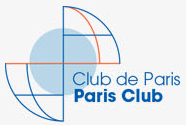Meeting of the Paris Club with representatives of non Paris Club bilateral creditors and representatives of the private sector
On Friday 17 June 2011, the Paris Club and the Institute of International Finance jointly organized for the 11th consecutive year a meeting between Paris Club creditors, representatives of non-Paris Club bilateral creditors and of private creditors. The IMF and the World Bank also attended this meeting.
As in previous years, representatives of non-Paris Club bilateral creditors were invited to this meeting. Representatives of Brazil, Poland, the Republic of Korea, Romania, South-Africa and the United Arab Emirates took part in the meeting.
Creditors discussed several current global finance issues.
Firstly, creditors discussed the most recent restructuring activities of the Paris Club, with emphasis on the issue of comparability of treatment in Democratic Republic of Congo, Guinea-Bissau, Liberia and Togo. In order to restore debt sustainability, those countries, sometimes faced with the action of litigating creditors, need to get comprehensive debt relief from all their creditors. This meeting was also an opportunity to exchange views on the evolving situation in Sudan in the context of the partition process, and on the forthcoming steps for Cote d'Ivoire on the way to HIPC completion point and to restore market access.
Specific debt issues in several countries including Iceland and Argentina were also discussed.
This was followed by a discussion on the economic consequences of the political transition in the Middle East and North Africa. Creditors stressed the importance of the mobilization of the international financial community, including the “Deauville Partnership” launched at the G8 summit of Deauville, in order to support Arab countries in their transition to free and democratic societies and exchanged views on actions for preserving market access in the region.
Eventually, creditors discussed the introduction of standardized collective action clauses in European sovereign bond indentures and shared views on their main features.

